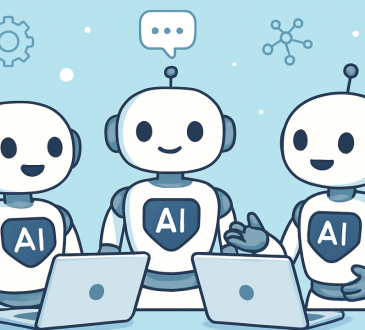
Artificial Intelligence (AI) is no longer just a concept of the future—it has woven itself into our everyday lives. From recommending what to watch on streaming platforms to helping autonomous vehicles navigate city streets, AI’s influence is everywhere. But with this power comes responsibility. As AI technologies evolve, so does the need for clear ethical guidelines and policies to ensure they are used responsibly. Here’s a look at the most recent developments in AI ethics and policies in 2025.
Global Regulatory Landscape: A Unified Push for Ethical AI
Governments worldwide are recognizing the need to regulate AI to prevent misuse, protect citizens, and ensure fairness.
India’s Initiative on AI Transparency
India is pushing for stricter regulations requiring AI-generated content to be clearly labeled. Platforms must display visible markers on AI-generated images, videos, and audio clips to curb misinformation and deepfakes. This step promotes transparency, protects the public, and holds AI developers accountable for their systems.
European Union’s Comprehensive AI Act
The European Union has introduced the AI Act, a comprehensive legal framework that categorizes AI systems by risk level. High-risk systems must meet strict requirements for transparency, accountability, and human oversight. Certain practices, such as social scoring systems and real-time biometric surveillance in public spaces, are prohibited. This legislation ensures AI technologies respect human rights and public safety.
United States’ State-Level Regulations
In the U.S., the lack of a unified federal AI law has led individual states to implement their own rules. For instance, California now requires AI chatbots to disclose that they are not human. Some platforms must also report on how they respond to users showing signs of distress or suicidal thoughts. These state-level measures reflect growing awareness of the ethical responsibilities of AI developers and companies.
Institutional and Academic Responses
Universities and research institutions are playing an important role in guiding ethical AI development.
Jawaharlal Nehru University’s Updated Research Guidelines
Jawaharlal Nehru University in India revised its research manual to include AI-specific rules. The updated guidelines enforce plagiarism checks on AI-generated content and emphasize ethical standards, such as obtaining proper approvals for research involving human participants. These changes highlight the need for ethical oversight when integrating AI into academic work.
Maxwell School’s AI Policy Minor
In the United States, the Maxwell School of Citizenship and Public Affairs introduced an AI Policy Minor. This program equips students with the knowledge and skills to navigate AI governance, societal impacts, and ethical decision-making. Such initiatives underscore the growing importance of formal education in AI ethics for future leaders.
Corporate Accountability and Ethical AI Practices
Businesses are increasingly accountable for the ethical impacts of their AI systems.
Microsoft’s Responsible AI Initiatives
Microsoft emphasizes transparency, fairness, and accountability in its AI systems through Responsible AI Transparency Reports. This approach not only protects users but also sets a model for other companies to follow.
Retail Sector Adoption of Ethical AI
AI is widely used in retail, from personalizing customer experiences to optimizing supply chains. Companies are now emphasizing ethical considerations such as bias mitigation, transparency, and data privacy. Practices like fairness-aware algorithms and regular bias audits ensure AI is used responsibly and equitably.
Technological Innovations in AI Governance
Technology itself is helping enforce ethical AI practices.
ArGen: Auto-Regulation of Generative AI
The ArGen framework (Auto-Regulation of Generative AI) aligns large AI models with ethical and regulatory standards. It uses machine-readable rules and layered governance systems to ensure AI operates safely and ethically. ArGen demonstrates how technology can help enforce the responsible use of AI.
Challenges and Future Directions
Even with progress, challenges remain in AI ethics.
Mental Health Standards in AI Chatbots
Research shows AI chatbots often fall short of mental health ethics standards. Without proper oversight, they may provide poor guidance or fail to respond effectively in crisis situations. Clear legal and ethical frameworks are essential to ensure AI tools in sensitive areas like mental health are safe and reliable.
Balancing Innovation and Ethics
Experts warn that prioritizing rapid AI innovation without considering ethical implications can lead to serious consequences. A balanced approach that integrates ethical principles into development is vital. AI systems must respect privacy, prevent bias, and operate transparently while still encouraging innovation.
Conclusion
The landscape of AI ethics and policies is rapidly evolving. Governments, educational institutions, corporations, and researchers are all contributing to frameworks that promote responsible AI usage. While challenges remain, these collective efforts are shaping a future where AI benefits humanity rather than posing risks.
Staying informed about AI ethics and policies is crucial. A collaborative approach—uniting regulators, educators, developers, and users—can ensure AI technologies remain ethical, transparent, and equitable, serving society’s best interests.




